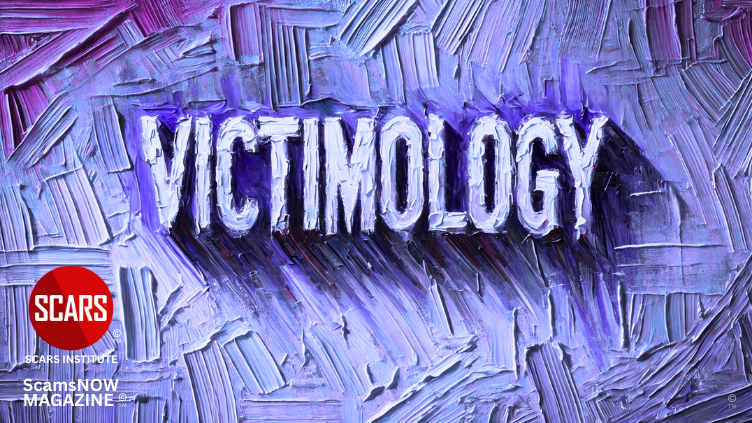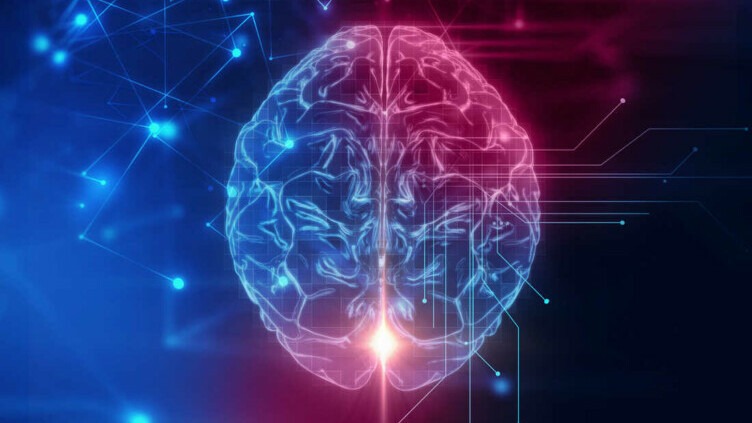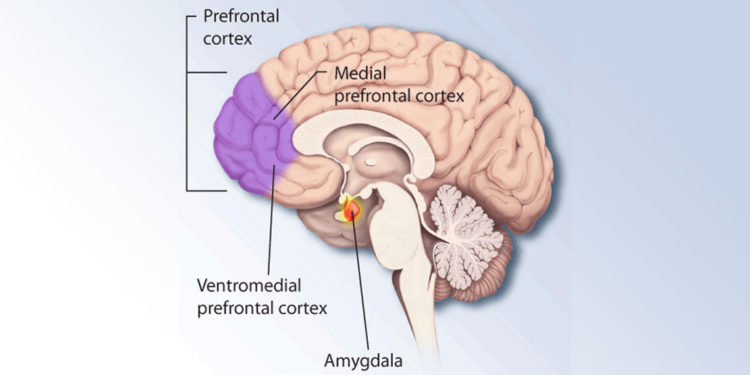Scam Victim’s Sacred Beliefs & Their Brain
An Essay About Scammer Manipulation & Victim Recovery
By Tim McGuinness, Ph.D. – Anthropologist, Scientist, Director of the Society of Citizens Against Relationship Scams Inc.
Sacred Beliefs & The Brain
In A Very Real Sense, A Relationship Scam Is A Full-on Attack On Your Sacred Beliefs!
When we refer to “sacred beliefs” in this article, we are referring to a victim’s closely held core beliefs, not to their religious beliefs.
The Brain & Sacred Beliefs
A part of our brain is the focus of our actual belief system – we call these sacred beliefs. The frontal lobes, specifically the ventromedial prefrontal cortex (vmPFC) (and other parts) play a major role in beliefs. Mental representations of the world are integrated with sub-cortical information by the prefrontal cortex. Amygdala and Hippocampus are involved in the process of thinking and thus help in the execution of beliefs.
Each of us has logical, emotional, and memory systems in our brain that direct our behavior. But the brain has a special part that brings these together in what is sometimes referred to as Sacred Beliefs – including the ventromedial prefrontal cortex (vmPFC).
The formation and processing of belief systems involve various regions of the brain, rather than being localized to a single area. Several brain regions contribute to belief formation, including the prefrontal cortex, anterior cingulate cortex, insula, amygdala, and parietal cortex. These regions work in conjunction to integrate sensory information, emotions, memories, and social influences to shape our beliefs.
It’s important to note that the brain’s functioning is complex, and belief systems are influenced by a combination of genetic, environmental, cultural, and individual factors, as well as outside influence, manipulation, and control!
The Ventromedial Prefrontal Cortex
The ventromedial prefrontal cortex (vmPFC) is a part of the brain that is involved in a variety of functions, including:
- Emotion regulation: The vmPFC helps to regulate emotions, such as fear, anxiety, and anger. It does this by integrating information from the amygdala (a brain region involved in processing emotions) with information from other parts of the brain, such as the hippocampus (a brain region involved in memory).
- Decision-making: The vmPFC is involved in decision-making, especially when the decisions involve social or emotional factors. It does this by weighing the potential risks and rewards of different options.
- Social cognition: The vmPFC is involved in social cognition, which is the ability to understand and respond to the thoughts and feelings of others. It does this by processing information about other people’s emotions and intentions.
- Self-awareness: The vmPFC is involved in self-awareness, which is the ability to understand one’s own thoughts, feelings, and experiences. It does this by integrating information about oneself with information about others.
- Memory: The vmPFC is involved in memory, especially memory for emotional events. It does this by storing information about emotional events and by retrieving this information when needed.
Scam Victims’ Sacred Beliefs
Sacred beliefs are the core beliefs of our being, they can be nationalistic, religious, humanistic, philosophical, moralistic, etc. In other words, they are what we believe – not what we know. This is also where we find all of those wonderful cognitive biases.
Sacred beliefs, from a psychological perspective, refer to deeply held convictions or principles that are regarded as sacred or inviolable. These beliefs often relate to religious, spiritual, or moral dimensions and are typically resistant to change or questioning. Sacred beliefs often provide individuals with a sense of meaning, purpose, and identity, shaping their worldview and guiding their behavior.
Psychologically, sacred beliefs can serve several functions:
- Meaning and purpose: Sacred beliefs offer individuals a framework to understand the world and their place in it. They provide answers to existential questions and offer a sense of meaning, purpose, and coherence in life.
- Identity and belonging: Sacred beliefs contribute to an individual’s sense of identity and affiliation with a particular group or community. They provide a shared set of values and beliefs that foster a sense of belonging and solidarity.
- Emotional significance: Sacred beliefs often evoke strong emotions such as awe, reverence, and devotion. They can provide comfort, solace, and a sense of hope during difficult times, offering emotional support and coping mechanisms.
- Moral guidance: Sacred beliefs often encompass ethical and moral principles, guiding individuals’ behavior and decision-making. They can provide a moral compass and a sense of right and wrong.
It’s important to note that sacred beliefs can vary greatly among individuals and cultures, encompassing religious, spiritual, ideological, or philosophical perspectives. These beliefs can be deeply personal and subjective, shaping individuals’ values, attitudes, and actions.
Brainwashing & Manipulation
Many believe in the notion of brainwashing, but most scientists discount brainwashing since the term depends on a degree of physical control. But what does seem very real is the use of emotional controls and manipulation to change our sacred beliefs.
Torture was long believed to be a way to change an individual’s secret beliefs, but by their very nature, sacred beliefs can motivate people to die for those beliefs.
On the other hand, emotional manipulation, as we have seen with terrorists held at Guantanamo, shows that even the hardest-held sacred beliefs can be manipulated and changed using emotional manipulation. This is largely what happens to scam victims to induce them to give away their life savings.
When the manipulation focuses on the emotional context of beliefs then things work differently because it does not seem to trigger the rule retrieval parts of our brain, it works directly on the motivations that underpin our sacred beliefs.
This is how, for example, a scam victim can be so convinced that the relationship is real, that they will be unfaithful to their spouse, betray their family, give away their wealth and even their home, and alienate friends and family.
One example of this is the Stockholm Syndrome.
Stockholm Syndrome
Stockholm syndrome is a psychological phenomenon in which hostages or kidnap victims develop a psychological bond with their captors or abductors. This bond may be characterized by a sense of trust or even affection.
Stockholm syndrome is an emotional coping mechanism of a captive or someone in an abusive situation. Because of their treatment, people develop positive feelings toward their captors or abusers over time. This condition applies to situations including child abuse, coach-athlete abuse, relationship abuse, and sex trafficking.
The term Stockholm syndrome was coined in 1973 after a bank robbery in Stockholm, Sweden. During the robbery, four employees of the bank were held hostage for six days. During the standoff, the hostages began to develop a bond with their captors. They expressed sympathy for their captors and even defended them after they were released.
One theory is that hostages develop a bond with their captors as a way of survival. By gaining the captors’ trust, hostages may believe that they are more likely to be spared.
Stockholm syndrome is not always present in hostage situations. It is more likely to occur in situations where the hostages are isolated from the outside world and have limited contact with their captors. It is also more likely to occur in situations where the captors are not physically violent.
Stockholm syndrome can have a significant impact on hostages. It can make it difficult for them to adjust to life after they are released. They may experience anxiety, depression, and difficulty trusting others. In some cases, they may even miss their captors.
Relationship Scams
Relationship scams are a bit different, but the same idea applies. Over the course of days and weeks the criminal develops emotional rapport, and little by little through Amygdala hijacking, induces the victim to change their sacred beliefs – about boundaries, money, and their friends and family. The end result is this profound change in the victim’s sacred beliefs.
One way that a relationship scam can undermine a victim’s sacred beliefs is by exploiting their vulnerability. Scammers often target people who are lonely, isolated or have recently experienced a loss. They may also target people who have strong religious or moral beliefs. By preying on these vulnerabilities, scammers can convince the victim that they are someone they can trust and that their requests for money or information are legitimate, even noble.
By systematically indoctrinating the victim through multiple methods of manipulation, the scammers (criminals) erode the belief system of their victim. Of course, the point of all of that is to steal the money from the victim – but it is done in such a way that the victims willingly give it to the criminals.
Victim Identity Crisis
When the scam or crime is over, it results in trauma, but the trauma may not just be from the discovery of the scam but also from a profound identity crisis that comes when a victim realizes that they violated what they held as their core sacred beliefs. After all, what is an identity crisis but a loss of faith in who we are – in other words in what we believe?
And this is where the really hard part comes in for victims! Beliefs do not come about because we will them into being. Beliefs come about (and this is the way we evolved) because we fundamentally want to belong to a group or tribe. By violating those sacred beliefs we undermine our existence in that group or tribe!
Sacred Beliefs & A Sense Of Belonging
The scammer became the victim’s tribe, and their family and friends were abandoned. Religion does exactly the same thing – that sense of belonging is at the root of religious conversion.
After the scam, victims lose their sense of belonging (belonging to the fake relationship) – but not completely, it clings, and it is so tempting to go back to it. This is why the average scam victim will be scammed more than 4 times (based upon SCARS Analytics) – these victims long for the return of belonging they had in the scam, so unconsciously they repeat the actions that led them to be scammed in the first place – this also plays a large role in criminal recidivism.
Victims long to be part of something again, and for this reason, they easily gravitate to amateur anti-scam groups that offer some form of community, even if it is based on anger and false narratives – it is still a community, and once they make it part of their new sacred beliefs, they will aggressively defend their group.
These same vulnerabilities exist in all of us, and it is why people can become religious or political zealots.
We have found that this belonging is important in our own SCARS scam victims’ support and recovery groups. But we employ one very important difference, that we work to maintain – elimination of a messiah.
Messiahs or Saviors
Once victims have not only lost control but have also violated their core beliefs, the trauma from this can cause a profound desperation to set in. It is often accompanied by anger and an almost religious conviction that they are going to stop these criminals – single-handedly if needed. This is referred to as a Savior or Messiah Syndrome or Complex.
A savior or messiah complex is a psychological condition (disorder) in which a person believes that they are destined or compelled to save or help others. This belief can be based on a sense of entitlement, a need for attention, or a genuine desire to help others, but when it comes from the trauma of a crime can be especially powerful.
People with a savior complex may feel compelled to help others, even if they are not asked or if they do not have the skills or resources to do so. They may also feel responsible for the well-being of others as a way of reestablishing control in their own life or overcoming an identity crisis, and they may become easily stressed or overwhelmed if they feel that they are not able to help. That stress can turn into anger and aggression against anyone that they see it a barrier.
Here are some of the signs and symptoms of a savior complex:
- Feeling compelled to help others, even if they are not asked or if they do not have the skills or resources to do so.
- Feeling responsible for the well-being of others.
- Becoming easily stressed or overwhelmed if they feel that they are not able to help.
- Having difficulty setting boundaries with others.
- Neglecting their own needs in order to help others.
- Engaging in unhealthy relationships with people who need your help.
Most of the anti-scam groups on social media have a leader that craves the attention and respect they get from their members because they (usually) are a victim too and desperately want to regain a sense of control (over themselves, but since this is difficult they substitute control over others) and a sense of belonging – they become a savior or a messiah to regain control and belonging.
The SCARS Approach
At SCARS we take a different approach and try to avoid recognition of a single individual as our member’s savior.
We work as much as possible behind the facade of our organization and rarely expose ourselves personally – at least as much as possible. This is a vitally important distinction that we strive for in our victims’ assistance methodology and ethics.
We are also very careful to monitor our own team members and volunteers for savior-like behavior, such as disregarding rules or our code of conduct, engaging in higher risk-taking, trying to be everyone’s friend and other behaviors that demonstrate the messiah complex.
Restoring Those Sacred Beliefs
Restoring a victim’s core beliefs and rebuilding one’s sense of self after being victimized by a scam or fraud can be a difficult process.
Here are some steps that crime victims can take toward restoration:
- Acknowledge the Impact: Recognize and acknowledge the psychological and emotional impact of the scam or fraud. Understand that it is normal to feel a sense of violation, betrayal, and loss of trust in oneself and others. Validating these emotions is an essential first step in the healing process.
- Seek Support: Reach out for support from trusted friends, family members, or support groups. Connecting with others who have experienced similar situations can provide validation, empathy, and guidance. Consider seeking professional help from therapists or counselors who specialize in trauma recovery to facilitate the healing journey. Join a SCARS Support Group by visiting http://support.againstscams.org
- Challenge Self-Blame: Victims often blame themselves for falling prey to scams or frauds. It is important to recognize that perpetrators are skilled manipulators who exploit vulnerabilities, and the responsibility lies with them, not the victims. Challenge self-blaming thoughts and work towards developing self-compassion and self-forgiveness. It was NOT your fault!
- Rebuild Trust: Rebuilding trust in oneself and others is a gradual process. Start by setting small, achievable goals that allow for positive experiences and interactions, such as participating in a support group with other victims. Surround yourself with supportive individuals who demonstrate reliability and trustworthiness, gradually expanding your social circle. Cut out of your life toxic or untrustworthy people!
- Engage in Self-Care: Prioritize self-care activities that promote physical, emotional, and mental well-being. Engaging in activities that bring joy, practicing mindfulness or meditation, maintaining a healthy lifestyle, and seeking enjoyable experiences can contribute to overall healing and restoration.
- Educate Yourself: Gain knowledge about scams, frauds, and manipulative tactics to better understand how the perpetrators operated – start reading on RomanceScamsNOW.com and here on ScamsNOW.com. This knowledge can help challenge any lingering self-doubt, empower you to make informed decisions, and prevent future victimization.
- Set Boundaries: Establish healthy boundaries in personal and financial relationships. Learn to recognize red flags and trust your intuition when something feels off but also recognize that your cognitive biases may cloud your intuition, so be careful. Communicate assertively and enforce boundaries to protect yourself from potential exploitation.
- Focus on Personal Growth: Engage in activities that foster personal growth and empowerment. Pursue hobbies, develop new skills, or explore educational opportunities that contribute to your sense of self-worth and competence. Reclaiming control over your life can be a transformative part of the healing process.
- Practice Resilience: Embrace resilience by focusing on your strengths and utilizing coping mechanisms to navigate challenges. Celebrate your progress, no matter how small, and remember that healing takes time. Be patient and kind to yourself throughout the journey.
Restoring core beliefs and regaining a sense of self after being victimized requires time, self-reflection, and support. By actively engaging in the healing process and embracing self-care, victims can gradually rebuild their lives, reclaim their core beliefs, and move forward with renewed strength and resilience.
Victim Recovery
Returning to the topic again, it is essential for all financial fraud victims to understand that there are psychological forces at work that can work against them and that must be brought to their awareness and their control. But remember, that these very self-same beliefs hide a victim’s lack of control behind biases and coping mechanisms.
This is part of the reason we so strongly recommend that all scam victims find a trauma counselor to explore past traumas that led to vulnerabilities, and present trauma that drives their traumatic responses/triggers on a daily basis, but also to better understand how their minds work and how to see beyond cognitive biases, coping mechanisms, and avoidance mechanisms.
Counseling is also important to help us rediscover our sacred beliefs and overcome the identity crisis that we caused by altering or abandoning them.
When we all understand how our minds really work, we are in a position to live better, happier, and more fulfilling lives. And have the knowledge we need for when future adverse events occur that can pull us back into trauma.
Also Read
To more fully understand this please also read A Temporoparietal Junction (RTPJ/LTPJ) Theory Of Relationship Scams
SCARS Resources:
- For New Victims of Relationship Scams newvictim.AgainstScams.org
- Subscribe to SCARS Newsletter newsletter.againstscams.org
- Sign up for SCARS professional support & recovery groups, visit support.AgainstScams.org
- Find competent trauma counselors or therapists, visit counseling.AgainstScams.org
- Become a SCARS Member and get free counseling benefits, visit membership.AgainstScams.org
- Report each and every crime, learn how to at reporting.AgainstScams.org
- Learn more about Scams & Scammers at RomanceScamsNOW.com and ScamsNOW.com
- Global Cyber Alliance ACT Cybersecurity Tool Website: Actionable Cybersecurity Tools (ACT) (globalcyberalliance.org)
- Self-Help Books for Scam Victims are at shop.AgainstScams.org
- Donate to SCARS and help us help others at donate.AgainstScams.org
- Worldwide Crisis Hotlines: International Suicide Hotlines – OpenCounseling : OpenCounseling
- Campaign To End Scam Victim Blaming – 2024 (scamsnow.com)
More:
- A Temporoparietal Junction (RTPJ/LTPJ) Theory Of Relationship Scams (scamsnow.com)
- The Amygdala Hijack! A SCARS™ Guide [Infographic][Updated] (romancescamsnow.com)
- Labeling Theory & What It Means For Victims Of Scams (scamsnow.com)
- Hope & The “Pig Pen” Syndrome (scamsnow.com)
- Scam Victims And The Reactivity Loop (scamsnow.com)
- Projection And Scam Victims (scamsnow.com)
-/ 30 /-
What do you think about this?
Please share your thoughts in a comment below!
More ScamsNOW.com Articles
-/ 30 /-
What do you think about this?
Please share your thoughts in a comment above!
SCARS LINKS: AgainstScams.org RomanceScamsNOW.com ContraEstafas.org ScammerPhotos.com Anyscam.com ScamsNOW.com
reporting.AgainstScams.org support.AgainstScams.org membership.AgainstScams.org donate.AgainstScams.org shop.AgainstScams.org
youtube.AgainstScams.org linkedin.AgainstScams.org facebook.AgainstScams.org
ARTICLE RATING
TABLE OF CONTENTS
- An Essay About Scammer Manipulation & Victim Recovery
- Sacred Beliefs & The Brain
- The Brain & Sacred Beliefs
- Scam Victims’ Sacred Beliefs
- Brainwashing & Manipulation
- Stockholm Syndrome
- Relationship Scams
- Victim Identity Crisis
- Sacred Beliefs & A Sense Of Belonging
- Messiahs or Saviors
- The SCARS Approach
- Restoring Those Sacred Beliefs
- Victim Recovery
- Also Read
- SCARS Resources:
- More:
- SCARS Institute™ ScamsNOW Magazine
Society of Citizens Against Relationship Scams Inc. [SCARS]
CATEGORIES
MOST POPULAR COMMENTED ARTICLES
POPULAR ARTICLES
U.S. & Canada Suicide Lifeline 988
![NavyLogo@4x-81[1]](https://scamsnow.com/wp-content/uploads/2025/04/NavyLogo@4x-811.png)
ARTICLE META
WHAT PEOPLE ARE TALKING ABOUT LATEST SITE COMMENTS
See Comments for this Article at the Bottom of the Page
on Projection And Scam Victims: “The moment I realized I had a financial loss due to a scam I realized that I felt shame, guilt,…” Jul 13, 19:12
on Japanese Legend of Tears – When There Are No Words – 2025: “After discovering the fraud, the pain was enormous. I shed oceans of tears, but I always tried to do it…” Jul 13, 10:50
on The SCARS Institute Scam Victim Recovery Timeline – 2025: “Wow. I umm experienced some of the later curves. I have been bouncing back and forth between asking myself why…” Jul 11, 00:01
on Transference And Emotional Danger After The Scam – 2024: “Thank you for the kind but firm reminder that the person in the stolen profile photo has their own life.…” Jul 9, 01:26
on ‘Mental Defeat’ – The Unique Condition Of Giving Up – 2024: “Thank you for another great article. I can see from this article that mental defeat would be debilitating to a…” Jul 9, 00:49
on Trust: Romance Scams Betrayal And Scam Victims – 2024: “This provided valuable insight that I can identify with” Jul 8, 16:44
on A Scam Victim in Extreme Distress – Stopping the Pain – 2024: “Your trust issues are very understandable. We are very sorry this happened to you. We suggest that you contact an…” Jul 8, 14:42
on A Scam Victim in Extreme Distress – Stopping the Pain – 2024: “My online counselors advised me to check myself in. I went to the hospital because I was suicidal. After I…” Jul 8, 13:44
on Scam Victim Catastrophizing Making Recovery Difficult 2024: “Excellent article on catastrophizing. I can understand how this could take a person down a rabbit warren of never ending…” Jul 8, 12:12
on The Self-Pity Trap & How To Overcome It – 2023 – [UPDATED 2025]: “I am not in the habit of feeling sorry for myself. After the deception, although it was not easy at…” Jul 8, 11:49
on Pride – A Dual Edged Sword For Scam Victims – 2023 [UPDATD 2024]: “Looking back over my life I have seen how pride has impacted me both positively and negatively. However the negative…” Jul 8, 09:08
on The Self-Pity Trap & How To Overcome It – 2023 – [UPDATED 2025]: “I felt self-pity while the enormity of my financial loss washed over me like a tsunami. The self-pity lasted only…” Jul 7, 18:55
on The Uniqueness Of Scam Victims Or Fraud Victims – 2024: “unfortunately all true. It is highly stressful dealing with the aftermath. I am being sued for the money I borrowed…” Jul 6, 12:50
on Scam Victims & Mental Health Blaming – 2023 [UPDATED 2025]: “For most of my life words have defeated me, made me feel insignificant, unwanted, unneeded. For this reason it is…” Jul 5, 13:36
on Substance Abuse Susceptibility And Scam Victims – 2024: “It is understandable how some would feel that alcohol or substance abuse would be helpful in handling their feelings after…” Jul 1, 20:36
on Scam Victims Use Work To Avoid Healing: “The last 6 years have been the most difficult of my life. The pandemic, having both parents in the hospital…” Jun 29, 18:38
on Entitlement Mentality And How Scam Victims Often Lose Their Path To Recovery – 2024: “Thank you for this discussion of entitlement. I can see from the descriptions listed that I have not felt entitlement.…” Jun 29, 18:22
on Samurai Wisdom and Rituals for Clearing the Mind After Scam Trauma – 2025 – [VIDEOS]: “A great guide on how to move forward in our recovery process with a calm mind, cleansed on an ongoing…” Jun 28, 07:34
on Delayed Gratification and Patience in Scam Victim Recovery – 2025 – [VIDEOS]: “We want to recover quickly and… we make new mistakes. How not to speed up the recovery process, how to…” Jun 28, 06:41
Important Information for New Scam Victims
Please visit www.ScamVictimsSupport.org – a SCARS Website for New Scam Victims & Sextortion Victims
SCARS Institute now offers a free recovery program at www.SCARSeducation.org
Please visit www.ScamPsychology.org – to more fully understand the psychological concepts involved in scams and scam victim recovery
If you are looking for local trauma counselors, please visit counseling.AgainstScams.org
If you need to speak with someone now, you can dial 988 or find phone numbers for crisis hotlines all around the world here: www.opencounseling.com/suicide-hotlines
Statement About Victim Blaming
Some of our articles discuss various aspects of victims. This is both about better understanding victims (the science of victimology) and their behaviors and psychology. This helps us to educate victims/survivors about why these crimes happened and not to blame themselves, better develop recovery programs, and help victims avoid scams in the future. At times, this may sound like blaming the victim, but it does not blame scam victims; we are simply explaining the hows and whys of the experience victims have.
These articles, about the Psychology of Scams or Victim Psychology – meaning that all humans have psychological or cognitive characteristics in common that can either be exploited or work against us – help us all to understand the unique challenges victims face before, during, and after scams, fraud, or cybercrimes. These sometimes talk about some of the vulnerabilities the scammers exploit. Victims rarely have control of them or are even aware of them, until something like a scam happens, and then they can learn how their mind works and how to overcome these mechanisms.
Articles like these help victims and others understand these processes and how to help prevent them from being exploited again or to help them recover more easily by understanding their post-scam behaviors. Learn more about the Psychology of Scams at www.ScamPsychology.org
SCARS INSTITUTE RESOURCES:
If You Have Been Victimized By A Scam Or Cybercrime
♦ If you are a victim of scams, go to www.ScamVictimsSupport.org for real knowledge and help
♦ Enroll in SCARS Scam Survivor’s School now at www.SCARSeducation.org
♦ To report criminals, visit https://reporting.AgainstScams.org – we will NEVER give your data to money recovery companies like some do!
♦ Follow us and find our podcasts, webinars, and helpful videos on YouTube: https://www.youtube.com/@RomancescamsNowcom
♦ Learn about the Psychology of Scams at www.ScamPsychology.org
♦ Dig deeper into the reality of scams, fraud, and cybercrime at www.ScamsNOW.com and www.RomanceScamsNOW.com
♦ Scam Survivor’s Stories: www.ScamSurvivorStories.org
♦ For Scam Victim Advocates visit www.ScamVictimsAdvocates.org
♦ See more scammer photos on www.ScammerPhotos.com
You can also find the SCARS Institute on Facebook, Instagram, X, LinkedIn, and TruthSocial
Psychology Disclaimer:
All articles about psychology and the human brain on this website are for information & education only
The information provided in this and other SCARS articles are intended for educational and self-help purposes only and should not be construed as a substitute for professional therapy or counseling.
Note about Mindfulness: Mindfulness practices have the potential to create psychological distress for some individuals. Please consult a mental health professional or experienced meditation instructor for guidance should you encounter difficulties.
While any self-help techniques outlined herein may be beneficial for scam victims seeking to recover from their experience and move towards recovery, it is important to consult with a qualified mental health professional before initiating any course of action. Each individual’s experience and needs are unique, and what works for one person may not be suitable for another.
Additionally, any approach may not be appropriate for individuals with certain pre-existing mental health conditions or trauma histories. It is advisable to seek guidance from a licensed therapist or counselor who can provide personalized support, guidance, and treatment tailored to your specific needs.
If you are experiencing significant distress or emotional difficulties related to a scam or other traumatic event, please consult your doctor or mental health provider for appropriate care and support.
Also read our SCARS Institute Statement about Professional Care for Scam Victims – click here
If you are in crisis, feeling desperate, or in despair, please call 988 or your local crisis hotline.
More ScamsNOW.com Articles
A Question of Trust
At the SCARS Institute, we invite you to do your own research on the topics we speak about and publish. Our team investigates the subject being discussed, especially when it comes to understanding the scam victims-survivors’ experience. You can do Google searches, but in many cases, you will have to wade through scientific papers and studies. However, remember that biases and perspectives matter and influence the outcome. Regardless, we encourage you to explore these topics as thoroughly as you can for your own awareness.
















![scars-institute[1]](https://scamsnow.com/wp-content/uploads/2025/04/scars-institute1.png)
![niprc1.png1_-150×1501-1[1]](https://scamsnow.com/wp-content/uploads/2025/04/niprc1.png1_-150x1501-11.webp)

This article enabled me to better understand how the criminals were able to get me to break long held truths in my innermost being – like sharing information and continuing to charge my credit cards after promising myself I was going to stop. Emotional manipulation. I don’t remember all the different arguments I went through with the criminal about sharing my info. I remember clearly though each time I was asked. That was the next step after telling me that the criminal viewed me as “wife”. The argument used for my information was why did I not trust my “husband” and share my infos. That was the red flag! Each time the criminal worked on me about sharing information they always used infos rather than info. The criminals worked on my sacred belief of not sharing my personal information. This belief was established early in my working life by my father: never share your pay, never share your social security number, never share your paystub, never share! The criminals worked on me for over a week, just wearing on me and wearing on me about trust. I would come back at them that if trust was so important why would they not share their photo even. It was always that if their management learned that the photo had been shared through their phone the ultimate price to pay would be that the relationship would be severed by management.
I now hope to rebuild my beliefs, belief in myself and trust again. I can see the pathway clearly now and I want to continue my journey.
Afraid of being abandoned, I abandoned myself which violated my core beliefs in so many ways. My scammers saw that and took full advantage of me.
Looking back, I did violate my core beliefs while being scammed. My scammers definitely were experienced and knew what they were doing.
This is an excellent article that makes all the sense about what happened to us victims of a romance scam. Accepting that the restoration of core beliefs and rebuild trust is hard, but possible, gives hope that, with time, and the proper counseling, we will rise up more resilient and strong than before the crime.